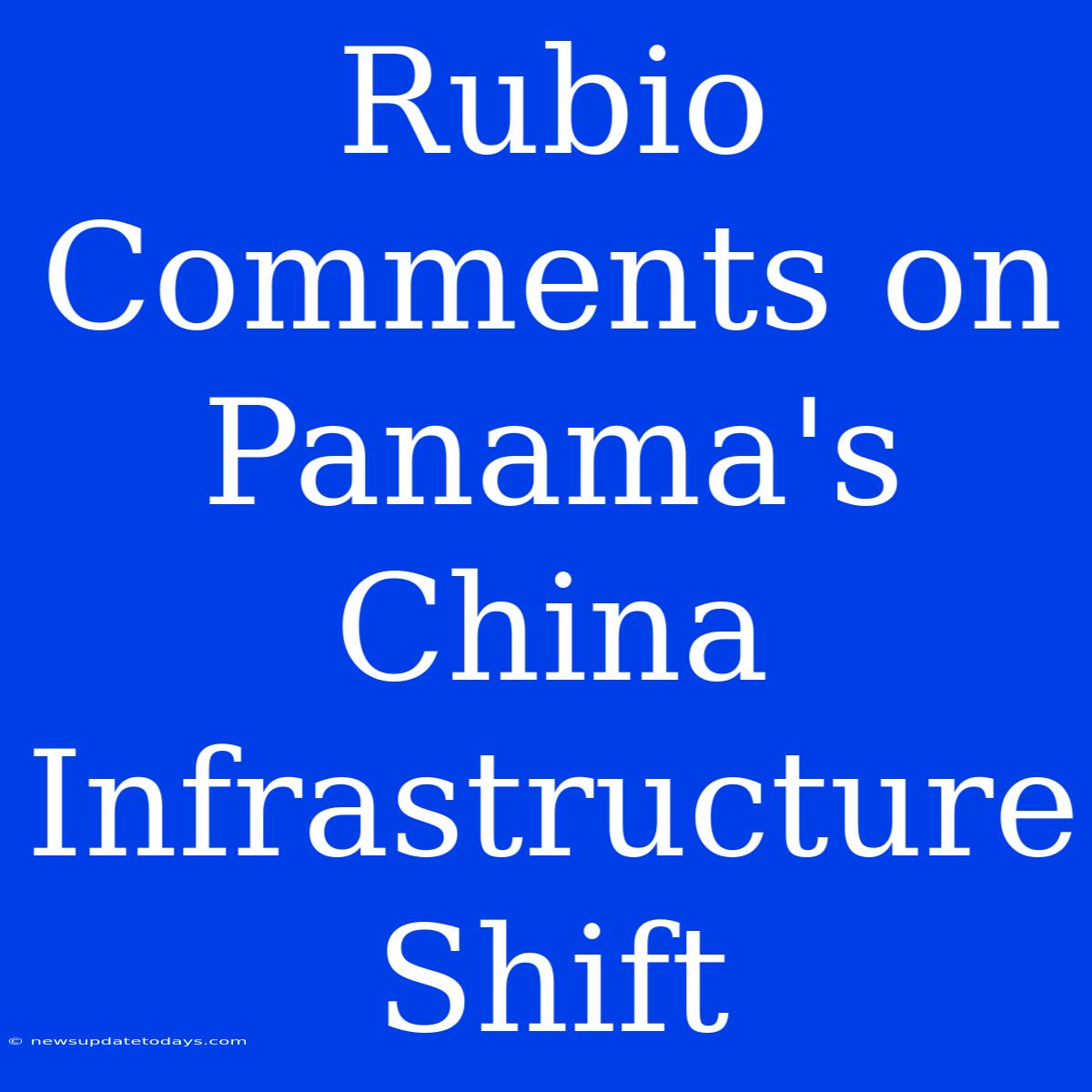Rubio Warns of Panama's Growing Ties with China: A Security Risk?
Marco Rubio's recent comments on Panama's deepening infrastructure ties with China have sparked debate about the implications for regional security and U.S. influence. The shift represents a significant geopolitical development, demanding a closer look at the potential consequences.
Panama's Infrastructure Reliance on China: A Growing Concern
Panama's decision to increasingly rely on Chinese investment for its infrastructure projects raises concerns among U.S. policymakers like Senator Rubio. These concerns aren't unfounded. The scale of Chinese involvement, encompassing projects like port expansions and other crucial infrastructure, raises questions about potential long-term implications for Panama's sovereignty and regional stability.
Key Concerns Highlighted by Rubio and Others:
-
Debt Trap Diplomacy: Critics argue China's infrastructure lending often leads to unsustainable debt burdens for recipient nations, potentially leaving them vulnerable to Chinese influence and control. This "debt trap diplomacy" strategy has been alleged in several countries, raising concerns about Panama's long-term financial health.
-
Security Risks: The presence of Chinese-built and operated infrastructure, particularly in strategically important locations like ports, could potentially grant China access to sensitive information and strategic advantages. This possibility directly impacts regional security and the interests of the United States.
-
Geopolitical Competition: Panama's move represents a shift in regional alliances, potentially undermining U.S. influence and strengthening China's foothold in the strategically vital Panama Canal region. This competition has broader implications for the balance of power in the Americas.
Understanding the Context: Why Panama Turned to China
While Rubio's concerns are valid, understanding the context behind Panama's decision to engage with China is crucial. Panama's infrastructure needs are significant, and securing funding for large-scale projects can be challenging. China's willingness to offer financing and expertise, often without the same stringent conditions as Western institutions, has proven attractive.
The Path Forward: Balancing Relations
The situation requires a nuanced approach. While concerns about Chinese influence are legitimate, completely cutting off ties with China is unlikely to be a practical or effective solution. Instead, a balanced strategy that encourages transparency, safeguards against undue influence, and strengthens partnerships with Panama is essential.
Potential Strategies for the U.S.:
-
Increased Engagement: The U.S. needs to actively engage with Panama, offering alternative financing options and collaborating on infrastructure projects that align with U.S. interests.
-
Transparency and Accountability: Promoting transparency and accountability in infrastructure deals is crucial. This includes careful scrutiny of contracts and ensuring projects adhere to environmental and labor standards.
-
Strengthening Alliances: Strengthening alliances within the region, promoting multilateral cooperation, and engaging in open dialogue are vital in addressing the challenges posed by China's growing influence.
Conclusion: A Call for Strategic Engagement
Marco Rubio's concerns highlight the complexities of China's growing presence in Latin America. While acknowledging Panama's need for infrastructure development, the potential risks associated with over-reliance on Chinese investment cannot be ignored. A strategic, multifaceted approach that combines engagement, transparency, and regional cooperation is crucial to mitigating these risks and safeguarding U.S. interests. The situation calls for proactive diplomacy and a long-term vision that balances economic development with regional security.

